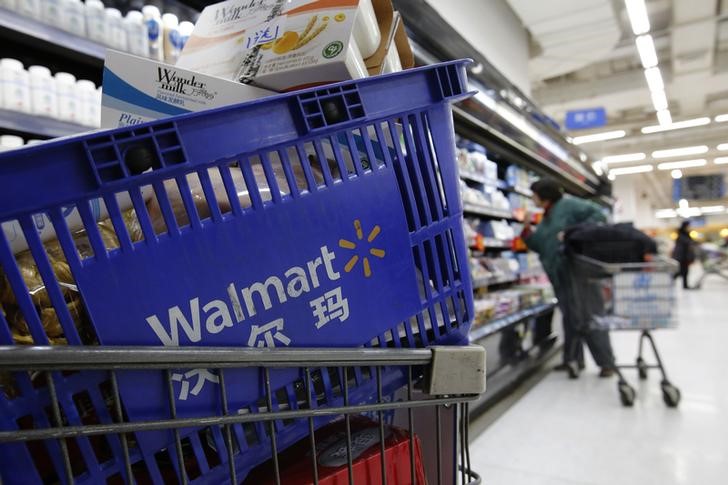BENTONVILLE, Ark. - Walmart Inc. (NYSE: NYSE:WMT), the retail giant with a market capitalization of $744.66 billion, has completed its acquisition of consumer electronics company VIZIO, according to a statement released today. The transaction, which was first announced on February 20, 2024, has now met all regulatory requirements and officially closed. VIZIO is known for its SmartCast Operating System and has become a wholly owned subsidiary of Walmart. According to InvestingPro analysis, Walmart is currently trading near its 52-week high, with the stock showing signs of being overvalued based on its Fair Value assessment.
The deal, valued at $11.50 per share in cash, translates to a fully diluted equity value of approximately $2.3 billion. With this acquisition, Walmart aims to introduce new customer entertainment experiences and accelerate the growth of Walmart Connect, its U.S. advertising business.
VIZIO has grown its user base to over 19 million active accounts since its founding in 2002, a 400 percent increase since 2018. Its advertising business has been particularly successful, now accounting for all of the company's gross profit. Walmart Connect, on the other hand, reported a 26 percent growth in the third quarter of this year and a 60 percent increase in advertiser growth.
Walmart's Executive Vice President and Chief Growth Officer, Seth Dallaire, commented on the alignment of values and customer focus between the two companies. VIZIO's CEO, William Wang, will continue to lead the company, reporting to Dallaire.
Despite the completion of the acquisition, the two entities will operate independently for the foreseeable future. VIZIO's Class A common stock is expected to be delisted from the NYSE as of the close of the market today, and its business will be included in Walmart's U.S. segment reports moving forward. Walmart's robust financial position is evident in its impressive $673.82 billion in revenue over the last twelve months, with InvestingPro data showing strong year-to-date returns of 78%.
Walmart anticipates that the transaction will be slightly dilutive to Earnings Per Share in the fourth quarter of fiscal year 2025 and for fiscal year 2026 due to transaction-related costs. The retail giant plans to finance the acquisition through cash and/or debt, expecting the Internal Rate of Return to surpass its reported return on investment.
This strategic move is part of Walmart's broader efforts to enhance its omnichannel retail presence and provide additional value to its customers and advertisers. The company maintains a moderate debt level and has demonstrated consistent financial strength with a "GOOD" overall financial health score according to InvestingPro, which offers comprehensive analysis and over 15 additional key insights about Walmart's financial performance in its Pro Research Report. The information is based on a press release statement from Walmart Inc.
In other recent news, Walmart has been making headlines with its robust third-quarter performance. The retail giant's earnings per share (EPS) of $0.58 exceeded analysts' projections by $0.05, and consolidated revenues increased by 5.5%. U.S. comparable sales rose by 5.3%, surpassing the 4.0% estimate, and global eCommerce sales increased by 27%, with a 22% rise in the U.S. market.
Several financial firms, including Barclays (LON:BARC), KeyBanc Capital Markets, Piper Sandler, Baird, Guggenheim, and RBC Capital Markets, adjusted their outlooks on Walmart. The firms maintained positive ratings, raising their price targets. Kathryn McLay, Executive Vice President, President, and CEO of Walmart International, established a prearranged stock trading plan, selling 4,000 shares of Walmart common stock monthly from March 2025 through December 2025.
KeyBanc recently provided insights into the mixed retail spending trends post Black Friday. Retailers like Lowe's (NYSE:LOW), Target (NYSE:TGT), and Wayfair (NYSE:W) may see more favorable year-over-year comparisons in the coming periods. Meanwhile, BofA highlighted Walmart's successful execution of a well-planned holiday sales strategy, which included a combination of early deal launches, exclusive access for loyalty members, and significant discounts on membership fees. These are the latest developments in the retail sector.
This article was generated with the support of AI and reviewed by an editor. For more information see our T&C.
